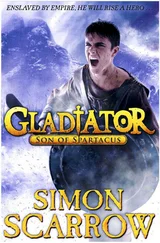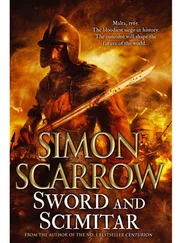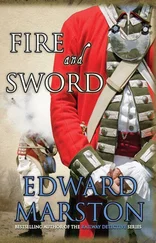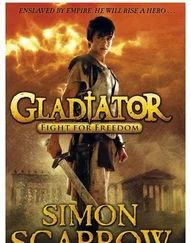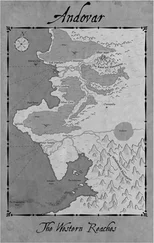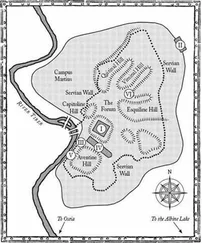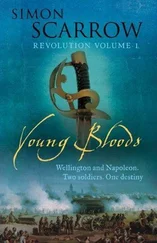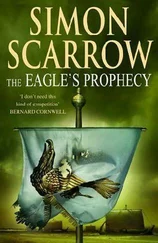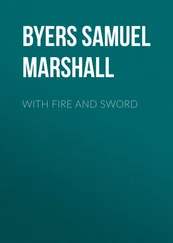Somerset’s expression was bitter and crestfallen as he stared longingly at the retreating enemy column. Then he composed himself and nodded. ‘Yes, sir.’
‘Then give the order for the cavalry to turn back.’
‘Yes, sir.’ Somerset wheeled his mount round to ride over to the colonel of the nearest regiment of dragoons. Arthur remained alone for a moment, staring out across the Galician countryside. For a moment his heart was heavy with the thought of giving up the pursuit. But for his orders he might have contemplated charging Soult’s exhausted soldiers. He could imagine the excitement of the charge, the mad thrill of pounding across the open ground towards the enemy. Yes, it would have been exhilarating, he thought. But he was a general now and his army needed him.There was no one better able to defeat the French in the Peninsula. He had added to his reputation with victories at Vimeiro and Oporto, and had humbled two of Bonaparte’s most valued commanders.
A fine start, he told himself.Yet there was more to do, much more, before Portugal and Spain were finally set free from their French oppressors.Arthur took one more look at the land of Spain and resolved in his heart that soon, very soon, he would lead his army into the heart of the Peninsula and succeed where General Moore had failed. He had no doubts about the magnitude of the task that lay ahead of him. Bonaparte had poured some quarter of a million of his men into Spain. But even though the British were outnumbered they had proved that they were the masters of Europe’s battlefields. They had shown the whole of Europe that the blue-coated legions that marched under Bonaparte’s eagles could be beaten time and again.
Arthur smiled with satisfaction. It could be done, as he had told Pitt, Castlereagh and the others. Soon, the French Emperor, safe in his palace in Paris, would be casting his gaze towards Spain with a heavy heart and knowing the first stab of fear that his empire was starting to unravel. As he considered the future Arthur felt the unshakable conviction that his finest hour was yet to come. He allowed himself a moment of pride, in himself and his men, and then smiled self-consciously for a moment.
Then, with a click of his tongue, Arthur eased his horse round and galloped back to re-join his army.
Author’s Note
Some historians consider the coronation of Napoleon, and his crushing victory at Austerlitz, as the high points of his astonishing career. Barely ten years earlier he had been a relatively unregarded artillery officer. At the time he became Emperor he was the master of Europe and commander of a formidable war machine.What is more, Napoleon had risen to the new throne on a combination of raw talent and plenty of luck. It is also important to remember that there was overwhelming popular support for Napoleon’s elevation from First Consul to Emperor. Armed with such a mandate Napoleon reformed the administration of France (and incidentally much of Europe) root and branch. Little escaped the attention of the workaholic Emperor who mastered a range of briefs to such an extent that he frequently surprised his ministers and experts with the depth of his knowledge of their specialities. There is no question that many of the changes that Napoleon made to the governance of France were effective and necessary. Along the way he ensured that meritocracy was given as much opportunity to flourish in civil society as in the military. I wish there had been space in this book to cover some of these changes in more detail but, as ever, there were decisions to be made about how much to include and in any case much of the positive legacy of Napoleon’s efforts only came to be fully appreciated in the years after his fall and are therefore outside the scope of this work.
Of course, there was an ulterior motive for much of his work. Napoleon’s lust for glory meant that he needed an efficient and well-motivated society to support the French war machine. In pursuit of this aim Napoleon was not prepared to brook any opposition and there were severe sanctions for those that corrupted the system, or refused to play their part. There is also little doubt that the power vested in the new imperial throne exacerbated a deep-seated megalomania - a characteristic that Talleyrand correctly saw as the gravest danger posed to France. Napoleon had always considered himself to be singled out by fate for greatness.As a consequence he often had little regard for others, and the hardships he subjected them to. Such people were there to serve his interests. This included not only his wife, but also his brothers and sisters, who were the tools Napoleon used to extend his dynasty across Europe.
Being destiny’s child had some unfortunate consequences for Napoleon. Firstly, it was increasingly difficult for him to accept that he could make a mistake. Accordingly, blame for his errors was lavished on his subordinates, instanced by the blaming of Berthier for the shooting accident with Masséna. Secondly, Napoleon believed so completely in his genius that he could not delegate easily, and frequently had to race from one crisis to the next in order to hold his empire together. The consequences of these flaws were soon to be exposed to all in the Russian campaign of 1812.
Unlike his rival, Arthur seemed to be as abandoned by destiny almost as often as he was favoured by it. After a gloriously successful series of campaigns that should have made a reputation that outshone that of Clive of India, Arthur returned from the subcontinent under something of a cloud, thanks to the political enemies of his older brother, Richard. That, coupled with the army’s rigid system of seniority, worked to deny Arthur the chance to demonstrate his brilliance in command. Those who knew Arthur were in no doubt about his talent, but there were few opportunities to put it to the test in the field against the armies of France. Until the decision was made to intervene in Portugal and Spain, that is.
While many other British generals were overcautious,Arthur realised the need to take the fight to the enemy. This eagerness was tempered by the knowledge that Britain could not afford the same level of casualties that France could accept.The battle at Vimeiro was a foretaste of the tactics that would win Arthur the unmerited reputation for being a defensive commander. He had limited resources, and needed to husband them carefully. Yet, as the brilliant success at Oporto clearly demonstrates, Arthur was quick to seize any advantage and then exploit it to the full.The capture of Oporto fully justified Arthur’s appointment to the command of the British forces in the Peninsula, and in the years to come he would prove time and again that the British soldier, well led, was more than a match for the men of the French Emperor.
As in Young Bloods and The Generals , I hope that I have presented this epic period of history as accurately as possible. In order to make the story flow freely I have been obliged to change some details, for which I apologise to those who are well read in this period. For example, I have described France’s enduring enemy as ‘Britain’, yet the French habitually referred to the people and armed forces of the British Isles as the ‘English’. It seemed sensible to simplify things by just referring to Britain and the British, though even in modern times there is still a tendency in France to use the label ‘English’ for all those who live on the other side of the Channel.
Although this is a work of fiction, it is astonishing how often my research confronted me with instances where the reality was simply far more strange than anything I could have invented. So, dear reader, before you begin to have any doubts, let me just reassure you about one thing; on a sunny day in France, a small army of rabbits did indeed rout one of the world’s greatest generals!
Читать дальше

